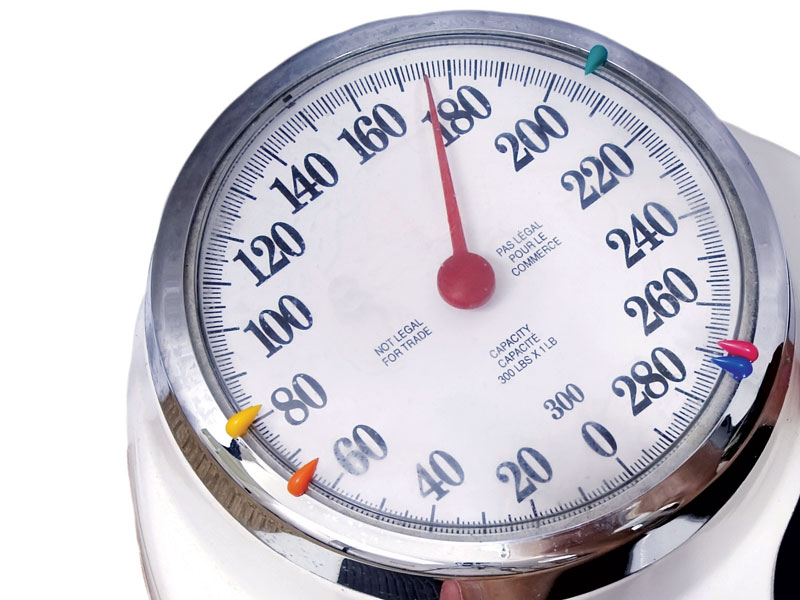Coronary heart disease takes years to develop, but Keung Ung, M.D., a cardiothoracic surgeon with Sanford Heart in Sioux Falls, South Dakota, said positive lifestyle changes after heart surgery can give people struggling with obesity years of healthy living.
He specializes in surgical treatments of the organs inside the chest, including the heart, lungs and esophagus, and explains the connection between weight and damage to the body that might require a surgical procedure.
Like plumbing
Besides the obvious added weight, type 2 diabetes often accompanies obesity, which causes blood glucose (sugar) to rise and damage to arteries in the body, especially small ones as found in the brain and heart. Being overweight thus promotes earlier onset of coronary disease.
Whether through inserting a stent or open heart surgery, obesity and uncontrolled diabetes are difficult to deal with because almost every vessel in the heart will be diseased.
And it’s never just one area that has narrowed but parts of the entire length of a vessel — kind of like beads on a string. There’s one here, then farther down there’s another. That makes it difficult to put one or two stents in because it affects the entire vessel. For surgeons, we try to find an area downstream that’s unaffected as much as possible to do a bypass.
Vascular coronary surgery is very much like plumbing: You need good inflow, good conduit and good outflow. Obesity and accompanying type 2 diabetes make it very difficult to achieve good outflow.
Buy time
There’s no cure for coronary disease.
With a stent or open heart surgery, we buy the patient time. We’ve set the clock back. How fast that clock keeps ticking forward depends on what the patient does: take their medication, watch what they eat, not smoking, exercise. Those are the key things to prolong the positive effects of heart surgery. The surgery is not a long-lasting fix unless the patient is willing to change his or her lifestyle.
People are at a crossroads with coronary disease by the time I see them. They’re often in their late ’60s or ’70s and say they’ve smoked all their lives. If someone is 72 and they’ve smoked for 50, by the grace of God they’ve gotten to that 72 by smoking, but now their body can’t take it any more. Now it’s time to change. Surgery with a change in lifestyle is what really improves longevity.
When making a lifestyle change, habits build on themselves — good or bad. If you take control of type 2 diabetes, you get better glucose control and your body is better able to manage that sugar better, so you lose weight and make your body more responsive to the insulin. But when you gain more by not eating well and exercising, the diabetes is harder to control, so the disease in the vessels progresses quicker, making you less energetic, which makes the diabetes worse.
Longer life
Cholesterol-lowering medication called statins have given a lot of hope to people who were presented with undiagnosed diabetes and suffered disease in their blood vessels. Taking that medication, in addition to stents or heart surgery and adhering to those better habits, have positively impacted their long-term outcome.
Obesity is by no means a death sentence. The ability to change is what gives people (and us) hope in regard to what we do.
Support each other
Whether it’s diabetes, obesity or smoking, spouses will often be in the same boat, so they can provide support and encouragement to others.
If I ask a patient to quit smoking and his or her spouse continues to smoke it’s unfair for just that person to quit. I ask for both of them to commit to each other’s health to quit smoking. Same thing with obesity and diabetes. It’s much easier to do when they’re in a partnership to use each other as a crutch and positively impact each other’s health.
Small changes add up
Even small changes to diet and exercise make a big difference.
People don’t need to run a marathon. Walking, bicycling, aerobic exercise is what really helps burn fat. You don’t need to walk far immediately. As your body gets used to doing one block, push for two, and that’s all it needs. Just to be active. Most of us are rather sedentary in our jobs. If you have bad knees, use an elliptical or join a gym. The other thing for those with really bad knees, aquatic exercise is oftentimes a good thing to do. I’ve had people who could barely walk at surgery, but I find them in an exercise class in the pool once they are fully recovered.
For improving your diet, eating out, whether it’s a fancy restaurant or local McDonald’s, is not the same as cooking at home. Using good, fresh produce to make our meals, and limit salt and fatty intake. Not only is it cheaper and less expensive, but it almost always is much healthier.
More stories
- Heart screenings protect against disease, save lives
- Sitting is the new smoking: ‘Truly a silent killer’
- Know your heart history
…
Posted In Health Information, Healthy Living, Heart, Weight Loss
